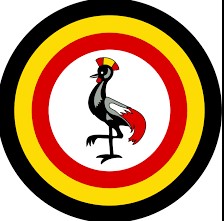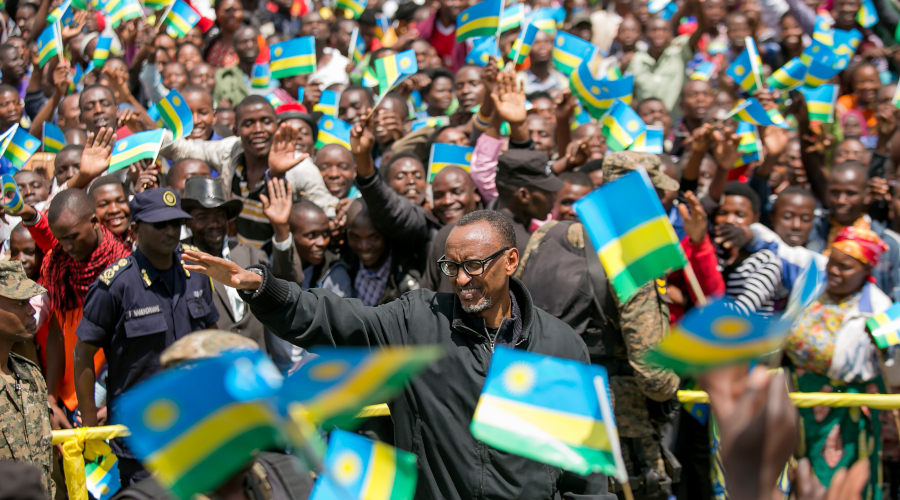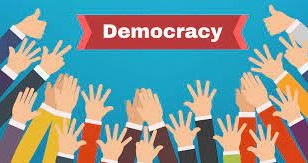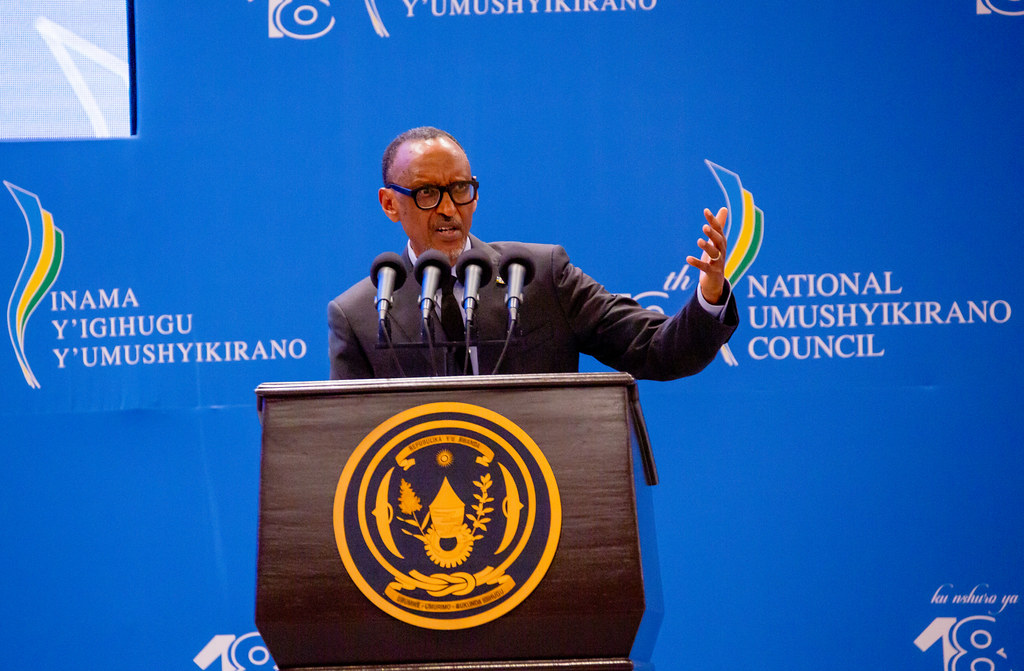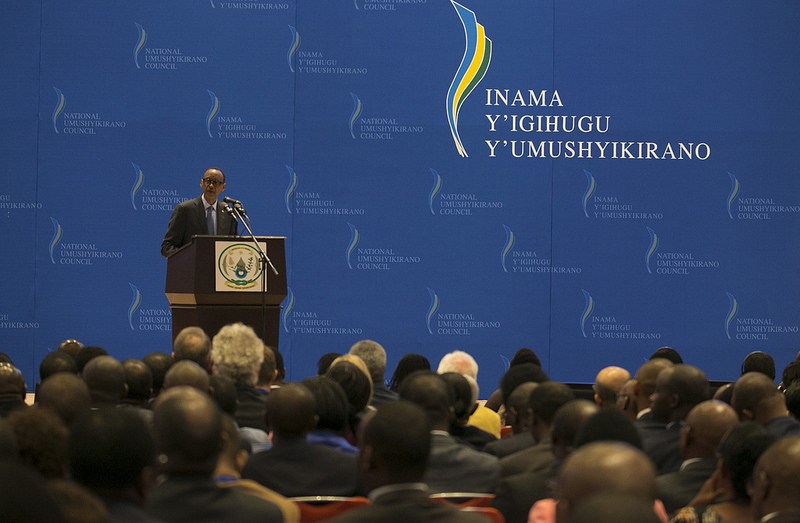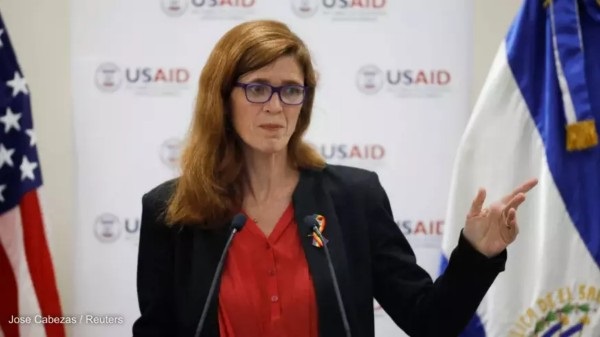Regional
Why does the West say Rwanda is 'undemocratic'?
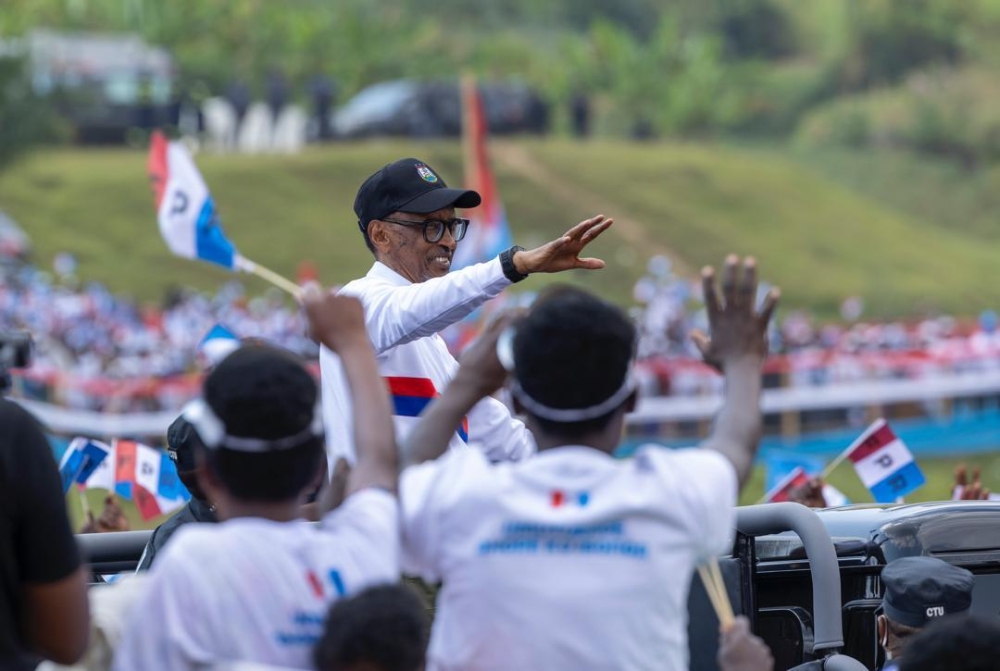
The Chairman and flagbearer of RPF-Inkotanyi and allied parties, incumbent President Kagame, campaigned in Ngororero District ahead of the July 15 general elections, on Monday, June 24.
Democracy has for long been used as a “channel” through which Western powers attack the RPF-led Rwandan government that denied their “lessons”, while transforming the country that was devastated 30 years ago, but is now a global successful story.
The RPF believes that foreign interference in Rwanda’s
internal politics can bring nothing good for Rwandans. In the past, it led to
divisionism among Rwandans, which ended up in the 1994 Genocide against the
Tutsi that claimed lives of more than one million people within 100 days.
To avoid repeating the tragic history, RPF chose to
consider Rwanda’s context and citizens' choices, over the wishes and so-called
“ways of democracy” from the West. As such, the Rwandan government has to pay a
price for serving its people in accordance to their choices. Western capitals
have employed political tools including Human Rights Watch and Amnesty
International to bully President Paul Kagame and his government into changing
their mindset.
Western media and the so-called NGOs assert that the
Rwandan President is “authoritarian”, that Rwanda is undemocratic, and not
safe. They can never say anything good about Rwanda. Most of the times, they
say Rwanda has no democracy.
Countless reports have shown that Rwanda is progressing in
all ways of life, people are happy and secure, and many foreigners actually
visit Rwanda to borrow a leaf from its transformational journey. They learn
about the country’s achievements in gender balance, unity and reconciliation,
as well as strengthening security institutions, among the other things.
This raises a question: who defines democracy for Rwandans?
While Rwandans are happy with their leadership, and their country is
progressing, Westerners from thousands of miles away never stop asserting that
Rwanda has no democracy.
Democracy is not a one size fit all. It's all about a
country’s context and uniqueness.
“Democracy is about freedom of choice, the kind of
political life countries, people, and individuals live. I have never known of
any place – if anybody knows they will tell me – where democracy has succeeded
by introducing those ideals from the outside,” President Paul Kagame responded
to reporters who asked him about the allegations of Rwanda being
“undemocratic”, in an interview on June 17.
“The other important thing about those freedoms, choices,
and practices is the political context of every country. Whether historical or
cultural, you will see different practices and lines of thinking that are going
to be different from one place to another. I have tried to understand what is
practiced in this country, Rwanda, that is different or that is the opposite of
the description I have given. I don’t see it,” the President added.
While campaigning in Ngororero District ahead of the July
15 general elections, on June 24, Kagame, the Chairman and flagbearer of
RPF-Inkotanyi and allied parties, reiterated that his party seeks to further
establish the mindset of self-reliance in the country’s development journey.
“There are people who don’t understand that 100% [votes] is
democracy. The journey of democracy we are in and our elections slated for July
15 is a Rwandan affair and not anyone else’s business. We do things in our own
manner.”
According to President Kagame, Rwanda’s context stems from
the people knowing where the country came from, 30 years ago, and where it is
going.
Western powers have shown their double standards whenever
they are referring to some countries as being democratic, while citizens from
those same countries are not happy with their leadership.
Even though a country’s leadership fails its people, it
will be “democratic” as long as it complies with the West’s wishes. But the
West’s wishes, especially when it comes to developing countries, are always
about interfering in other countries’ internal affairs. Many a time, it is
about selfish interests, especially plundering of a country’s natural wealth.
For Rwanda, this can never be. The lessons learnt from the
past are enough for Rwandans to understand what they need and what they do
not.
Rwanda chose consensual over confrontational democracy. The
country opted for a consensual democracy that consists of quest for solutions
through dialogue and consent. The Constitution of Rwanda provides for power
sharing and recognizes a multiparty system.
Political organizations provide a platform for Rwandans to
exercise the above constitutional choices with responsibility to promote the
principles of democracy, uphold the unity of Rwandans, the integrity and the
security of the country.
They are expected to educate the citizens on engaging in
political activities based on democracy, on expressing the right to vote and to
be elected as well as ensuring equal access for women and men to elective
mandates and functions of the government.
The fact that some political parties chose to support
President Kagame, the flagbearer of RPF-Inkotanyi, in the July elections, is an
indication that Rwandans work for a common goal: rebuilding their nation. They
have no time for confrontation.
For the West, an African country will be democratic when people are burning wheels in streets, stoning the offices of government institutions, and fighting each other over leadership. Rwanda will never fit in this definition again.


